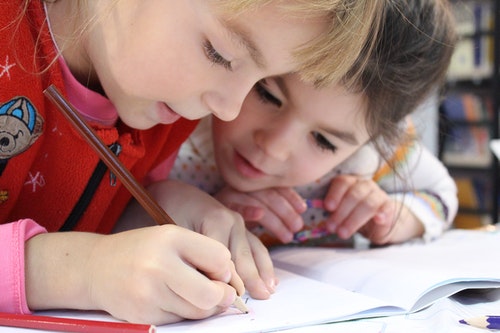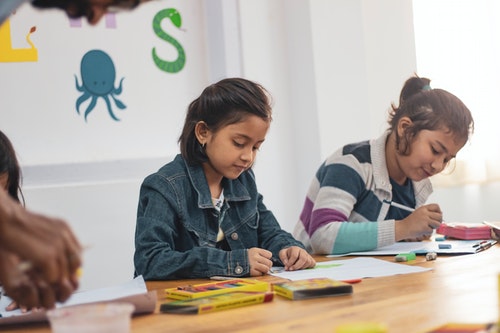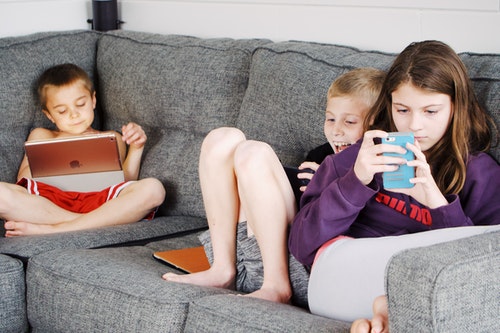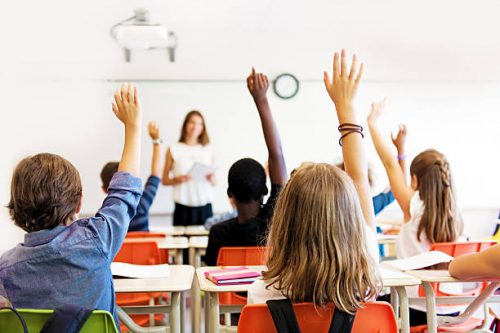It’s not unusual for parents to avoid discussing topics involving mental health with their kids. After all, they want to protect their kids as much as possible—especially from stress. But as the kids begin to learn more in school, their minds will also start to mature. Kids will naturally be exposed to more knowledge as time passes by. Younger kids would only ask why the sky is blue. Children in middle and high school will have much more complex questions.
Understandably, talking about counseling can be too heavy and confusing for kids. Even adults find it challenging. You may also think that it would be better if your kids focused on school. But while many parents hesitate to discuss this with their children, mental health awareness is gaining attention worldwide. More people are starting to embrace being open about their kid’s mental health in regular schooling. One by one, schools and companies have also been holding seminars on counseling.
Parents are children’s first teachers, and their homes are their first schools. Before they start formal education, it is your duty and responsibility to guide their beliefs and viewpoints. In the recent parent-teacher learning collaboration study notes that being open about counseling at home can help your children cope better at school and learn exam stress management. They may even be the catalyst for these types of conversations amongst their peers! Here are a few more reasons why you should be more open about counseling to your kids:

Good Mental Health Leads To Better Academic Performance
If you’re like most parents, you want your children to perform well in school. You may think that openly discussing your feelings and mental health will negatively affect your child’s academic performance. You might also feel awkward when disclosing such sensitive information with your kid. Contrary to this belief, being open about getting counseling will help your child get better at school.
Mental health is related to school success. Studies show that poor mental health can lead to poor academic performance. If students are stressed, anxious, or depressed, they are likely to receive a lower grade or have poor retention. On the other hand, a good mental state will allow them to perform well in school. If you show no shame in undergoing counseling, they will be more inclined to seek a counselor when they need to.
Moreover, if your kid doesn’t understand the importance of mental health and counseling, they can develop negative attitudes. These mindsets may hurt their well-being and those of their classmates as well. Bad experiences in school may cause their school performance to drop. Having to face disciplinary actions can be frequent, too. Your child may also avoid school altogether. So, it’s crucial to impart the value of counseling and mental health to your kids early on.

Being Open Will End The Stigma Even Before It Begins
Keep in mind that your adolescent children are slowly transitioning to their teenage years. They can now better process and handle information. They are also capable of asking difficult questions. If you are not open with them about mental health and counseling, they will seek answers elsewhere. Learning about counseling in a different environment may give them false information. Your child should get it from you first.
As a parent, you may find it hard to discuss your mental health challenges. Of course, you should not overly burden your child with your woes. However, you should give them a sense of what is going on in your life. They may not be able to solve your problems, but having a listening ear can already help ease your troubles.
Simply sharing your emotions can already have a profound impact on your child’s perspective of mental health. The more you talk about your mental health, the more they feel comfortable with sharing theirs as well. They will learn that it’s okay not to be okay sometimes and not attach any shame to their feelings.
Your Own Mental Health Can Affect Your Children’s Behavior
Mental health problems can affect your behavior and, consequently, your home life. While sorting out your issues with the help of your counselor, your child may get confused. They might also misunderstand you. If you do not discuss the importance of counseling, your children may make false assumptions about your situation. It’s important to make them understand why you need to undergo counseling.
Also, parent-teen relationships tend to be complex. As kids transition to teenhood, they’re slowly figuring out the world and constructing their concepts of love, friendships, and relationships. They are also breaking away from parental control and slowly making their own choices in life. As a parent, it can be quite challenging to think about how your child is coping. However, your role is to guide and support. Conversations about mental health will not only help them understand you. It will also help them acknowledge their feelings.
Communicating openly with your children will also help create a more open relationship. If your child knows that you can discuss anything with them, they will not be afraid to speak. They will realize that they can talk to you freely if something is bothering them. This dynamic will help them manage their responses to emotions, especially intense ones.

In Conclusion
Mental health awareness is gaining more attention around the world. More and more educators realize the impact of counseling on students. To stop the stigma, it is essential to educate children more on the importance of seeking help. Kids should learn about counseling not just from school but from their homes, too. Doing so can promote the healthy emotional, social, and behavioral development of students.
Everyone aims to help students receive a good education. Mental health challenges, as well as life’s hurdles, will hinder your children from achieving academic success. Sometimes, these difficulties cannot be faced alone. Thankfully, there are counseling and therapy—valuable resources available for those facing challenges. As a parent, you should show your children that it’s okay to ask for professional help when things get tough. Counseling can help them deal with their problems and find success in life.







